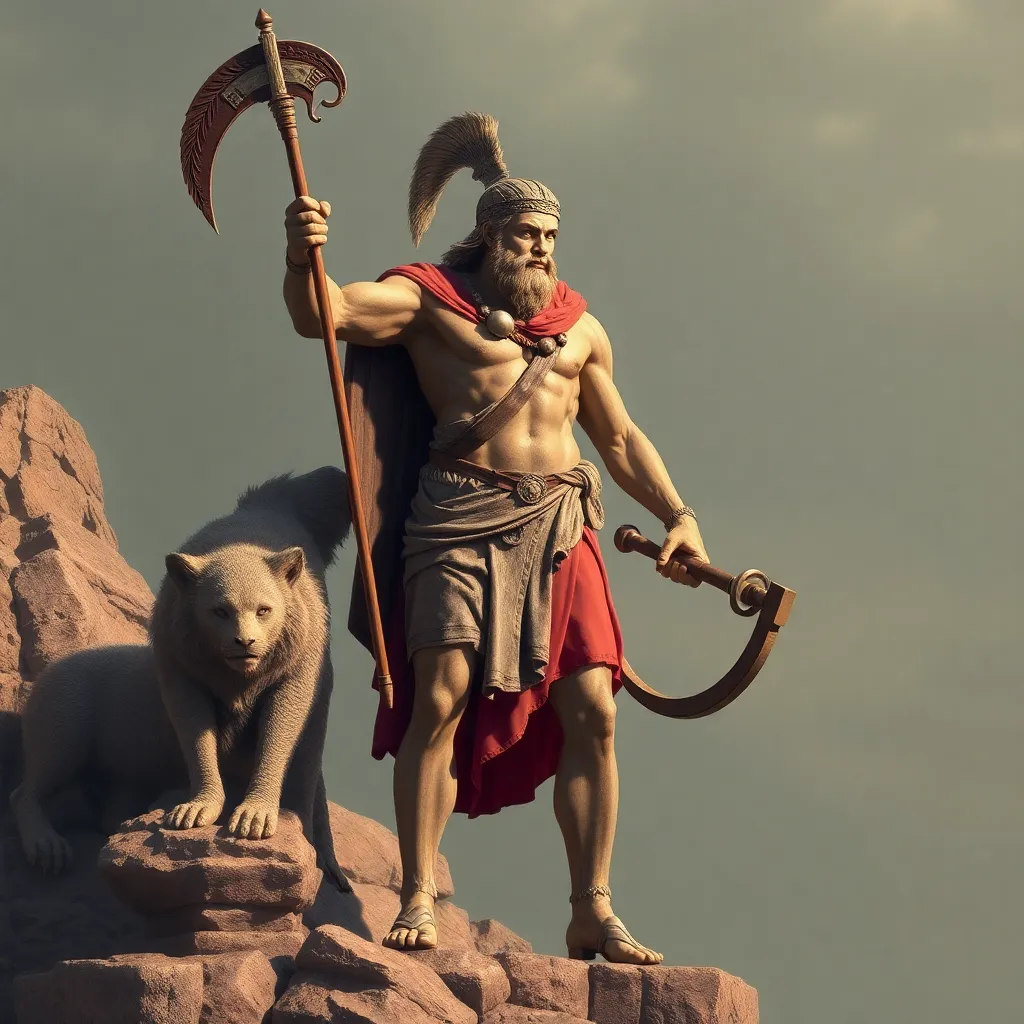The Significance of Heracles’ Relationships with Other Heroes
I. Introduction
Heracles, known as Hercules in Roman mythology, stands as one of the most celebrated figures in Greek mythology. His tales of strength, bravery, and resilience have captivated audiences for centuries. However, what often shapes the narrative of Heracles are not just his individual feats but also his relationships with other heroes. These connections are crucial in understanding his character, the dynamics of heroism, and the moral lessons embedded in their interactions.
This article aims to explore the significance of Heracles’ relationships with other heroes, examining how these interactions not only influenced his adventures but also enriched the larger tapestry of Greek mythology.
II. Heracles and His Companions: A Brotherhood of Heroes
The concept of heroism in Greek mythology transcends mere physical strength or bravery. It embodies camaraderie, loyalty, and shared quests. Heracles, despite his formidable prowess, often relied on the support of his companions, which played a pivotal role in his adventures.
- Theseus: A fellow hero, Theseus shared a deep bond with Heracles. Their friendship is illustrated in various myths, including the journey to the Underworld to retrieve Persephone, showcasing the strength of their alliance.
- Iolaus: Heracles’ nephew and devoted companion, Iolaus assisted him in many labors, offering both practical support and emotional encouragement. Their relationship exemplifies loyalty and the importance of familial bonds in heroic narratives.
- Others: Heracles also formed alliances with numerous other heroes, including the Argonauts, each contributing to his journey and highlighting the communal aspect of heroism.
The role of camaraderie in Heracles’ adventures cannot be overstated. These relationships provided not only assistance in times of peril but also enriched his character, allowing for moments of vulnerability and growth.
III. Rivalries and Conflicts: Heracles and Other Heroes
Rivalries are a common motif in Greek mythology, and Heracles was not exempt from this dynamic. His conflicts with other renowned heroes, such as Achilles and Odysseus, were pivotal in shaping his narrative.
- Achilles: Their rivalry stemmed from differing ideals of heroism. Achilles, the quintessential warrior, was often at odds with Heracles’ more multifaceted approach to challenges.
- Odysseus: The cunning hero of the Odyssey, Odysseus and Heracles had contrasting methods—brute strength versus intellect. This rivalry showcased different forms of heroism and underscored the complexity of their characters.
The impact of competition on Heracles’ character development is profound. Through these rivalries, he learned humility, the value of strategy over brute force, and the importance of understanding different perspectives. The lessons learned from conflicts with other heroes reflect the inherent complexities of human nature.
IV. Mentorship and Influence: The Role of Mentor Figures
Mentorship plays a significant role in Greek mythology, and Heracles’ relationship with Chiron, the wise centaur, is particularly noteworthy. Chiron was a mentor to many heroes, imparting knowledge and skills essential for their journeys.
Through his tutelage, Chiron shaped Heracles into a more rounded hero—one who understood the importance of wisdom alongside strength. This relationship highlights the significance of mentor-mentee dynamics in the development of heroic figures.
The legacy of these relationships is evident throughout Greek mythology, where mentorship often guides heroes toward their destinies, emphasizing the importance of knowledge and guidance in achieving greatness.
V. Heracles and the Concept of Teamwork
Teamwork is a prevalent theme in many of Heracles’ adventures. Notably, his involvement with the Argonauts during their quest for the Golden Fleece illustrates the power of collective effort.
- Exploration of Collective Quests: Heracles participated in numerous group quests, showcasing the strength found in unity. Each hero brought unique skills to the table, emphasizing collaboration.
- Importance of Teamwork: The heroic feats achieved through teamwork demonstrate that even the mightiest heroes need allies. Heracles’ role often involved fostering collaboration, uniting heroes for a common cause.
Heracles’ ability to inspire and lead others in pursuit of shared goals highlights the value of teamwork in overcoming obstacles, reflecting the broader human experience of working together to achieve success.
VI. Thematic Analysis: Friendship, Loyalty, and Betrayal
Friendship, loyalty, and betrayal are recurring themes in the relationships of Heracles. His connections with other heroes demonstrate the complexities of these emotions.
- Themes of Friendship: The bonds forged between Heracles and his companions reflect the deep-rooted importance of friendship in overcoming adversity.
- Instances of Loyalty: Loyalty was a cornerstone of many of Heracles’ relationships, particularly with Iolaus, who remained steadfast through trials.
- Betrayal: However, not all relationships were unblemished. Instances of betrayal, such as the jealousy displayed by some heroes, added layers of tension and conflict to his narrative.
These themes reflect broader human experiences, reminding us of the importance of trust and the potential for conflict in relationships.
VII. The Legacy of Heracles’ Interactions with Other Heroes
The interactions of Heracles with other heroes have left an indelible mark on literature and cultural perceptions of heroism. His relationships have influenced countless literary works and interpretations, establishing him as a model for future hero relationships in mythology.
- Influence on Literature: Heracles’ adventures and relationships have inspired writers and artists throughout history, shaping the portrayal of heroes in various cultures.
- Model for Future Heroes: The dynamics exhibited in Heracles’ relationships serve as a template for understanding heroism, camaraderie, and rivalry in future mythological narratives.
- Impact on Cultural Perceptions: His story has contributed to evolving notions of friendship, loyalty, and the inherent complexities of human relationships.
VIII. Conclusion
In summary, the relationships that Heracles cultivated with other heroes are of paramount significance in understanding his character and the overarching themes of Greek mythology. These connections not only shaped his narrative but also provided profound insights into the nature of heroism, friendship, and human experience.
The legacy of these interactions endures, inviting further exploration into the life and adventures of Heracles and his mythological world. Through examining these relationships, we gain a deeper appreciation for the complexities of heroism and the bonds that define it.




